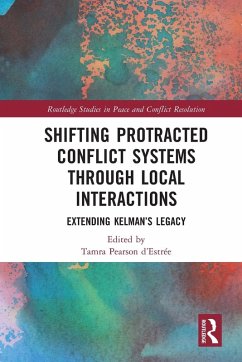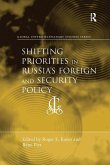This volume explores the evolution of theoretical and practical approaches to intervening in protracted conflicts, following the work of Herb Kelman.
Interactive problem solving, as developed by Kelman and others, sought to increase understanding about the microprocesses of international relations. Kelman early on emphasised the centrality of an interactive approach for constructing new identities, new narratives, and new ways forward. Transforming conflict systems requires strategic attention to the interactions between agents of change that provide stability or induce shift. This volume on interactive conflict approaches includes both critical reflections and new ideas from scholar-practitioners who have developed, revised, and expanded these approaches. Contributors take up important issues, from the shape and likelihood of solutions in intractable conflicts to how individuals can exist in realities with seemingly irresolvable inner and outer conflicts. The volume represents the best of current thinking about how the mechanisms, theoretical framework, and application of interactive problem solving should be moved into the twenty-first century context of increasing complexity, increasing uncertainty, and increasing polarisation.
This book will be of interest to students of peace studies, conflict resolution, and international relations.
Interactive problem solving, as developed by Kelman and others, sought to increase understanding about the microprocesses of international relations. Kelman early on emphasised the centrality of an interactive approach for constructing new identities, new narratives, and new ways forward. Transforming conflict systems requires strategic attention to the interactions between agents of change that provide stability or induce shift. This volume on interactive conflict approaches includes both critical reflections and new ideas from scholar-practitioners who have developed, revised, and expanded these approaches. Contributors take up important issues, from the shape and likelihood of solutions in intractable conflicts to how individuals can exist in realities with seemingly irresolvable inner and outer conflicts. The volume represents the best of current thinking about how the mechanisms, theoretical framework, and application of interactive problem solving should be moved into the twenty-first century context of increasing complexity, increasing uncertainty, and increasing polarisation.
This book will be of interest to students of peace studies, conflict resolution, and international relations.









